第10章 II THE MANIAC(7)
The man who begins to think without the proper first principles goes mad; he begins to think at the wrong end. And for the rest of these pages we have to try and discover what is the right end. But we may ask in conclusion, if this be what drives men mad, what is it that keeps them sane? By the end of this book I hope to give a definite, some will think a far too definite, answer. But for the moment it is possible in the same solely practical manner to give a general answer touching what in actual human history keeps men sane.
Mysticism keeps men sane. As long as you have mystery you have health; when you destroy mystery you create morbidity. The ordinary man has always been sane because the ordinary man has always been a mystic.
He has permitted the twilight. He has always had one foot in earth and the other in fairyland. He has always left himself free to doubt his gods; but (unlike the agnostic of to-day) free also to believe in them. He has always cared more for truth than for consistency.
If he saw two truths that seemed to contradict each other, he would take the two truths and the contradiction along with them.
His spiritual sight is stereoscopic, like his physical sight: he sees two different pictures at once and yet sees all the better for that. Thus he has always believed that there was such a thing as fate, but such a thing as free will also. Thus he believed that children were indeed the kingdom of heaven, but nevertheless ought to be obedient to the kingdom of earth. He admired youth because it was young and age because it was not. It is exactly this balance of apparent contradictions that has been the whole buoyancy of the healthy man. The whole secret of mysticism is this: that man can understand everything by the help of what he does not understand. The morbid logician seeks to make everything lucid, and succeeds in making everything mysterious. The mystic allows one thing to be mysterious, and everything else becomes lucid.
The determinist makes the theory of causation quite clear, and then finds that he cannot say "if you please" to the housemaid.
The Christian permits free will to remain a sacred mystery; but because of this his relations with the housemaid become of a sparkling and crystal clearness. He puts the seed of dogma in a central darkness; but it branches forth in all directions with abounding natural health.
As we have taken the circle as the symbol of reason and madness, we may very well take the cross as the symbol at once of mystery and of health. Buddhism is centripetal, but Christianity is centrifugal: it breaks out. For the circle is perfect and infinite in its nature; but it is fixed for ever in its size; it can never be larger or smaller. But the cross, though it has at its heart a collision and a contradiction, can extend its four arms for ever without altering its shape. Because it has a paradox in its centre it can grow without changing. The circle returns upon itself and is bound.
The cross opens its arms to the four winds; it is a signpost for free travellers.
Symbols alone are of even a cloudy value in speaking of this deep matter; and another symbol from physical nature will express sufficiently well the real place of mysticism before mankind.
The one created thing which we cannot look at is the one thing in the light of which we look at everything. Like the sun at noonday, mysticism explains everything else by the blaze of its own victorious invisibility. Detached intellectualism is (in the exact sense of a popular phrase) all moonshine; for it is light without heat, and it is secondary light, reflected from a dead world.
But the Greeks were right when they made Apollo the god both of imagination and of sanity; for he was both the patron of poetry and the patron of healing. Of necessary dogmas and a special creed I shall speak later. But that transcendentalism by which all men live has primarily much the position of the sun in the sky.
We are conscious of it as of a kind of splendid confusion; it is something both shining and shapeless, at once a blaze and a blur. But the circle of the moon is as clear and unmistakable, as recurrent and inevitable, as the circle of Euclid on a blackboard.
For the moon is utterly reasonable; and the moon is the mother of lunatics and has given to them all her name.